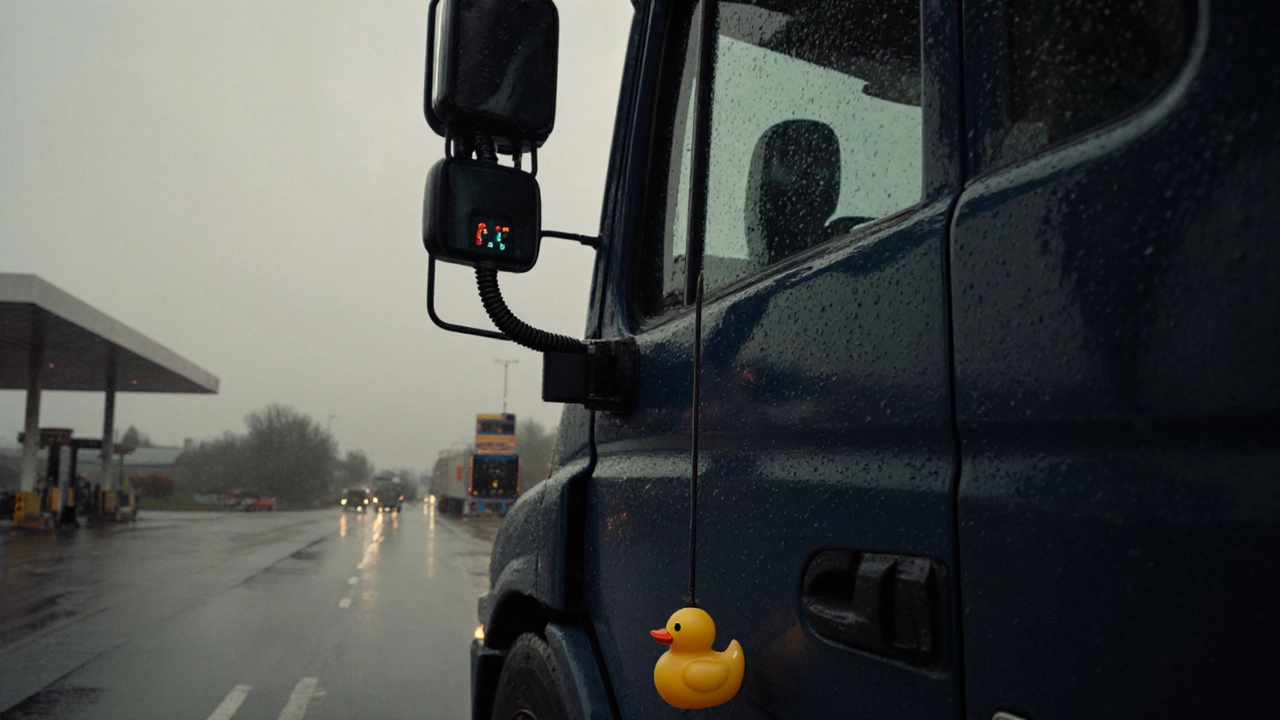CB Radio Terms: Essential Jargon for HGV Drivers in the UK
When you’re behind the wheel of a heavy goods vehicle, CB radio, a two-way radio system used by truckers to share real-time road updates, safety alerts, and location info. Also known as citizens band radio, it’s not just a gadget—it’s your lifeline on the motorway. Whether you’re stuck in traffic near the M25 or heading north on the A1, knowing the right CB radio terms keeps you safe, informed, and part of the trucking community.
Truckers don’t talk like normal drivers. They use shorthand codes and slang that have been passed down for decades. You’ll hear "breaker breaker" to open a channel, "10-4" for "acknowledged," and "smokey" when a police car is nearby. These aren’t just quirks—they’re practical tools. A quick "speed trap ahead" or "flat tyre on hard shoulder" can save you time, money, or even your license. And it’s not just about warnings. Terms like "bear in the air" (helicopter patrol) or "coffee pot" (mobile speed camera van) help drivers anticipate hazards before they see them.
CB radio communication also ties into how you interact with other drivers. Saying "10-20" (location) lets others know where you are, which matters when you’re hauling a wide load or need help on a quiet stretch. "Radar detector" might get you a heads-up, but "good buddy" or "thanks for the heads-up" builds trust. This isn’t just about rules—it’s about respect. The UK’s HGV drivers rely on this network more than you think. Even with modern GPS and apps, nothing beats a live voice warning about a sudden closure or icy patch.
And don’t forget the regional differences. A "bin lorry" might be called a "waste truck" in some areas, but on CB, it’s often just "garbage"—and everyone knows what that means. You’ll also hear "chicken coop" for weigh stations or "dog house" for rest areas. These terms aren’t in any manual, but they’re in every experienced driver’s head. Learning them isn’t about sounding cool—it’s about staying in the loop.
What you’ll find below are real posts from drivers who’ve been there. You’ll see how CB radio terms show up in everyday situations—like what to say when you’re stuck behind a slow-moving HGV, how to report a breakdown without causing panic, and why some phrases are still used even when newer tech exists. These aren’t theory lessons. They’re lived experiences. Whether you’re new to the road or looking to sharpen your communication, the posts here give you the exact phrases you need to use—and avoid—on your next haul.
- November 20 2025
- 0 Comments
- Rowan Cavendish
What Does 'Rubber Ducky' Mean in CB Talk for HGV Drivers?
In CB radio slang, 'rubber ducky' refers to the flexible antenna commonly used on HGVs. Learn what it means, why truckers use it, and how CB talk helps drivers stay safe on the road.
- Driving Lessons (43)
- Driving Test Tips (34)
- HGV Training (32)
- Driving Test Booking (28)
- Driving Licence Renewal (26)
- Driving Theory Test (22)
- Intensive Driving Course (20)
- Pass Plus Course (15)
- Driving Tips (15)
- Driver Licensing (14)
Categories
- February 2026 (7)
- January 2026 (13)
- December 2025 (15)
- November 2025 (13)
- October 2025 (21)
- September 2025 (5)
- August 2025 (8)
- July 2025 (30)
- June 2025 (30)
- May 2025 (30)
- April 2025 (31)
- March 2025 (30)
Archives
- driving lessons
- driving test
- driving tips
- intensive driving course
- driving test tips
- HGV training
- driving theory test
- learn to drive
- driver training
- pass driving test
- driving test booking
- HGV driving
- road safety
- Virginia driving test
- driving license renewal
- Virginia driver's license
- learner drivers
- safe driving
- driving license
- learning to drive

